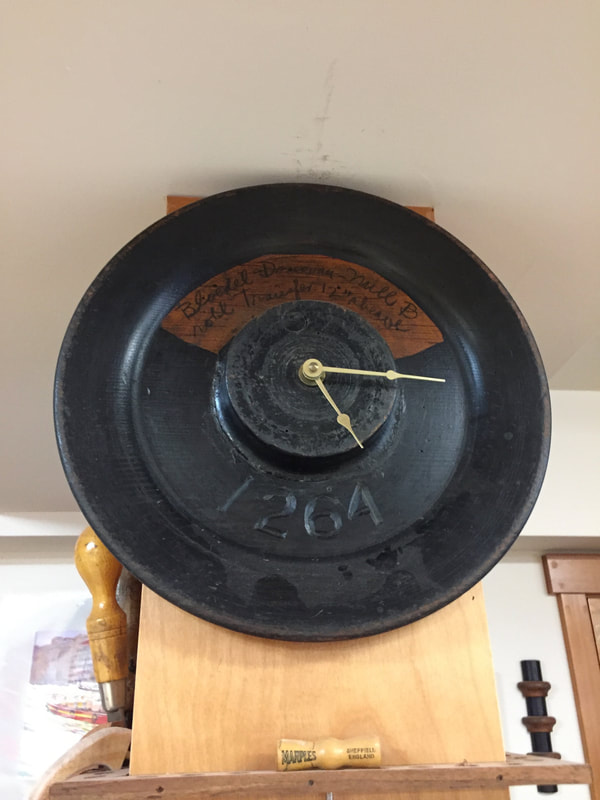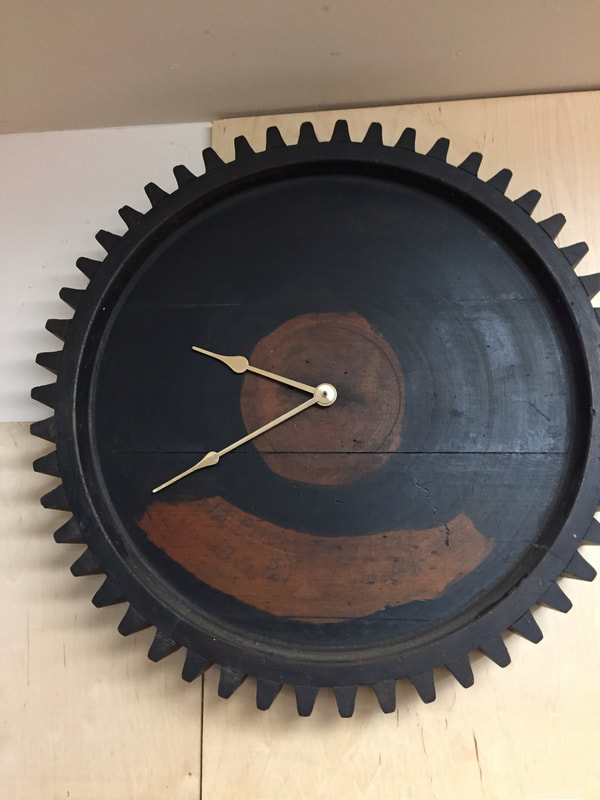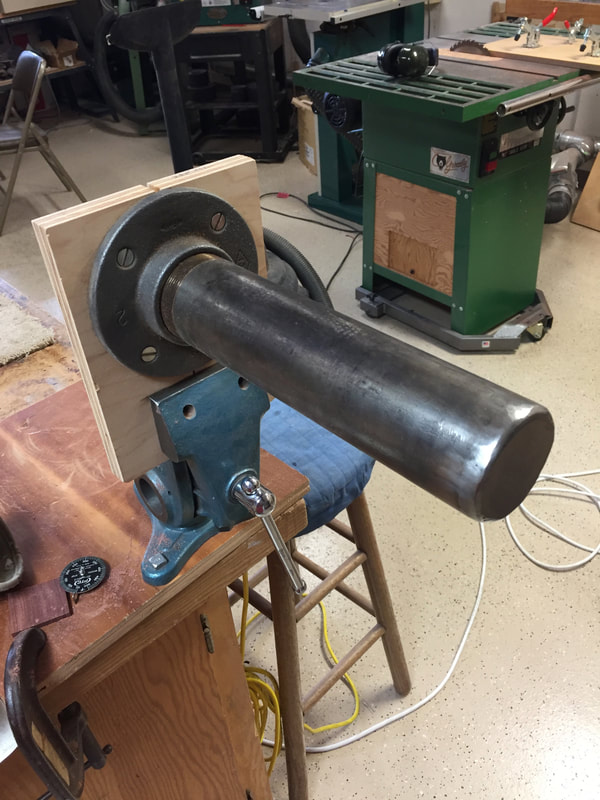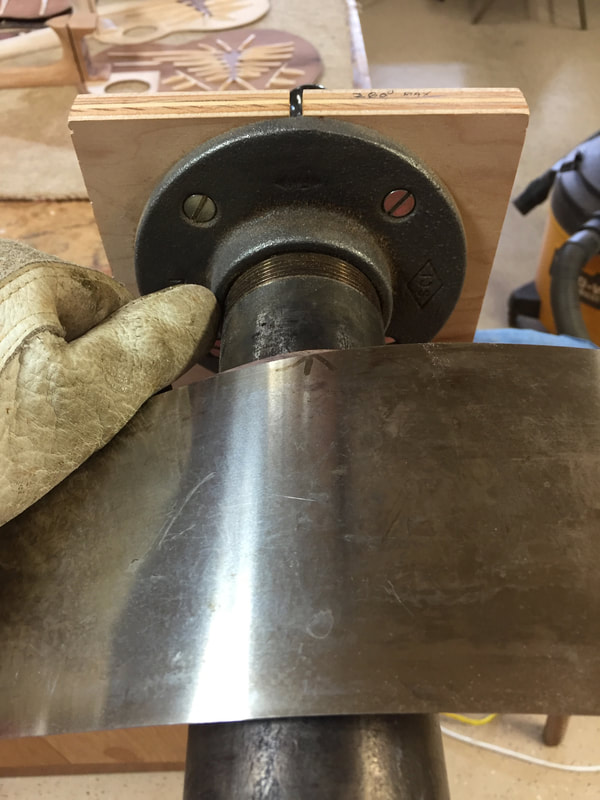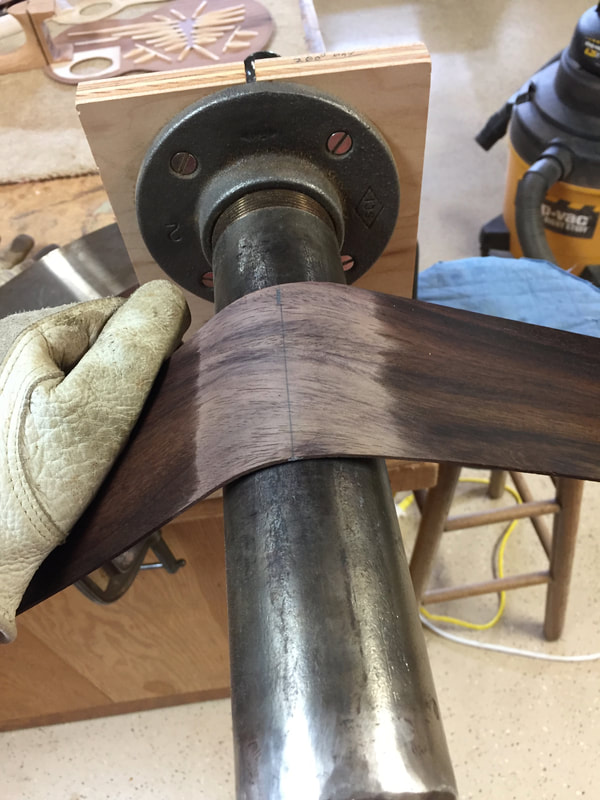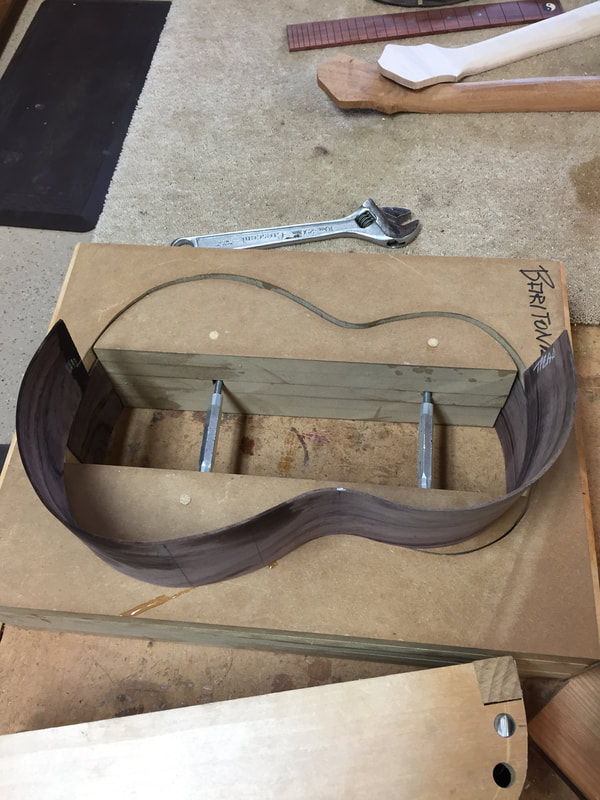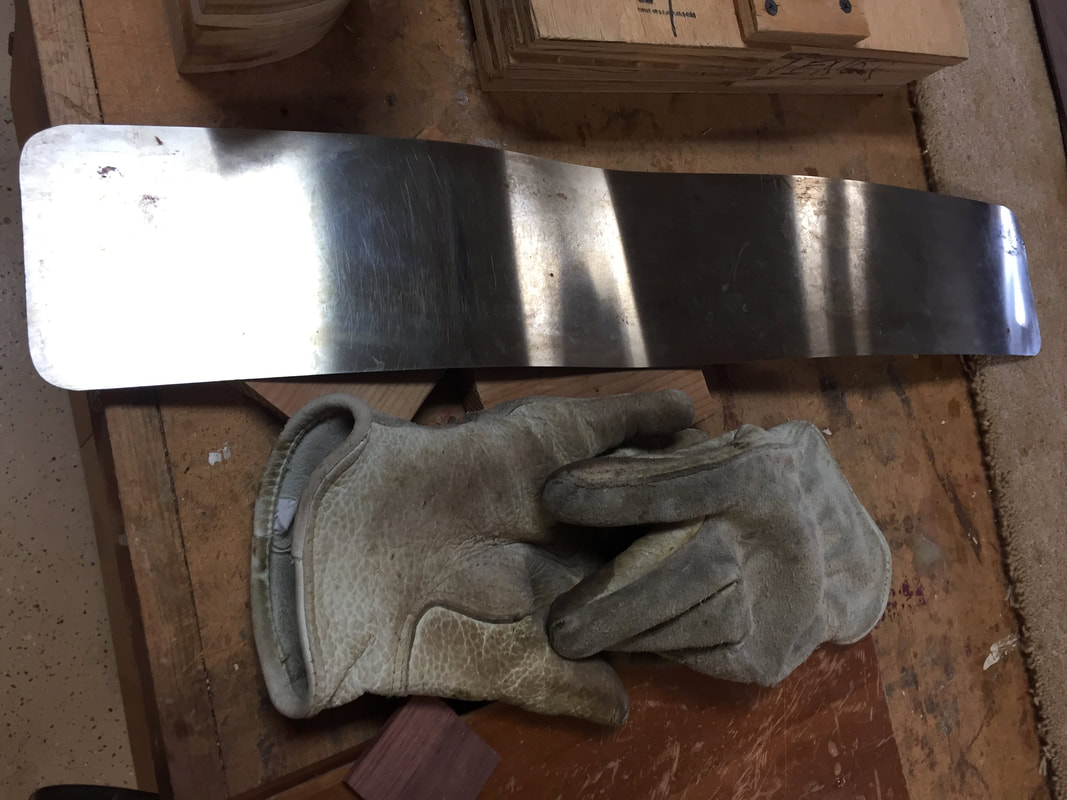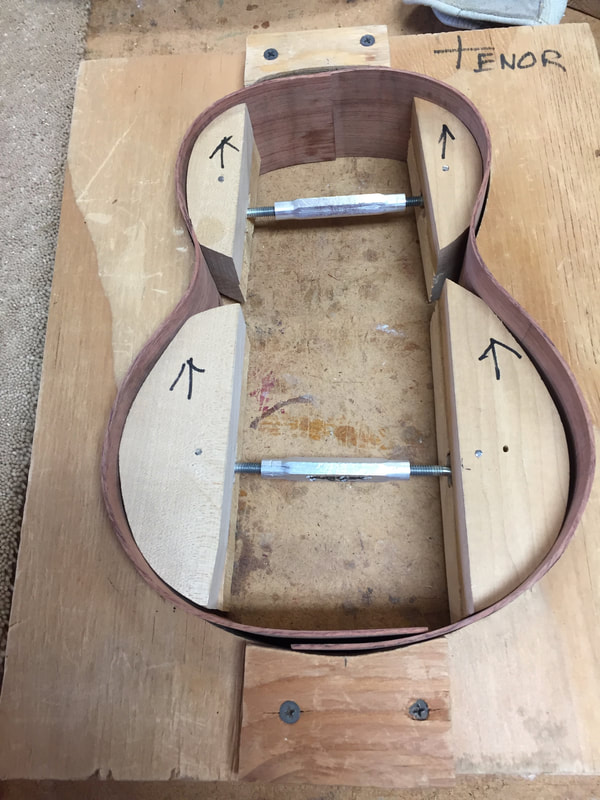Two clocks hang on the workshop walls, both of them made many years ago from old foundry patterns salvaged from the old Union foundry pattern shop. The ancient foundry just closed its doors two months ago after operating from 1905 until 2019. Four generations of the Hood family ran it all of those years.
The old wooden patterns were all painted black and they had the name of the customer written on them in longhand, This was a pattern for a wheel for the Bloedel Donovan Lumber company that operated on Bellingham's waterfront from 1913 to 1945.
This grand cog wheel clock is 20 inches across. It says on it, "Vanderpol, Lynden" It was a simple matter to install electric clocks in these historic old patterns. They keep good time and are a warm reminder of the past in my rather eclectic workshop. So happy that I rescued a lot of these old wooden foundry patterns.
I got new batteries in the clocks while the hot pipe was heating up. It was time to bend the sides.
Once the pipe gets to 250 degrees it is time to bend. The dampened side is placed on the pipe under the flexible steel bending sheet. The sheet contains the heat and provides aid in the bending process.
Here is the beginning of the big waist bend on the East Indian Rosewood. Slow and easy and feel the tension in the wood begin to relax. This is a fun process.
The end result was a really good bend. Now it will go into the mold/press for 24 hours to cool, dry and set itself.
Tools of the trade-- thick leather gloves and the bending sheet.
So I got four excellent bends this morning. Two Bubinga sides for the tenor, two Ea. Indian Rosewood for the baritone. Both of these woods bend quite easily. I have found that hand bending on the hot pipe results in better bends, no breakage, and greater satisfaction than using the bending press and heat blanket. Anyone want to buy my bending press?
